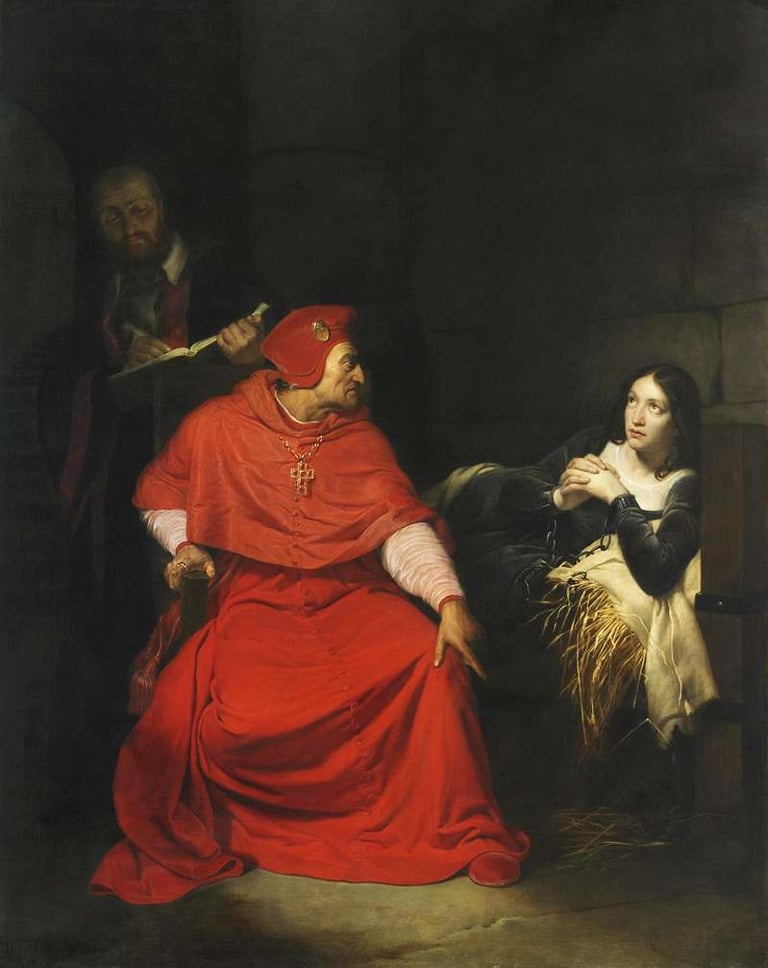The Trial of Joan of Arc
The 1431 Trial of Joan of Arc, a politically motivated inquisition orchestrated by English partisans, saw the French military leader unjustly accused of heresy and witchcraft, with her fundamental rights systematically denied. Despite her resilience, the biased court, intent on discrediting her and King Charles VII, ultimately condemned her to death. This notorious "show trial" holds immense significance as a historical precedent for judicial manipulation and the perversion of justice, profoundly influencing modern legal thought on due process, the rights of the accused, and judicial independence, particularly after her posthumous rehabilitation in 1456 exposed the original proceedings' severe corruption.
The Trial of Joan of Arc in 1431 exemplifies a politically driven legal proceeding, showcasing how judicial mechanisms can be perverted. Captured by English allies, the 19-year-old French military leader faced a biased Church court aimed at discrediting her and King Charles VII. Presided over by Bishop Pierre Cauchon, an English partisan, the inquisition accused her of heresy, witchcraft, and cross-dressing. The trial suffered severe irregularities and a fundamental denial of basic rights: Joan was denied legal counsel, subjected to grueling interrogations, and faced entrapment questions. Despite her unwavering defiance and appeals to divine mission, the court was determined to convict her. Her refusal to recant "sins" and her insistence on wearing men's clothing ultimately sealed her predetermined, tragic fate.
The Trial of Joan of Arc holds profound significance for its historical role in shaping the perception of state-controlled justice and its lasting legal legacy, particularly in highlighting the dangers of power abuse and the critical importance of fair trials. The blatant judicial manipulation, politicization of religious authority for secular ends, and systematic denial of rights serve as a powerful historical precedent, often referenced as an archetype of a "show trial." Decades later, her 1456 posthumous retrial and formal rehabilitation publicly exposed the pervasive corruption and injustices of the original proceedings, definitively declaring them null and void. This later legal review underscored the vital importance of mechanisms for correcting historical wrongs and reinforced legal accountability. Consequently, Joan's case became a critical touchstone for future discussions on due process, the rights of the accused, an independent judiciary, and the perils of conflating legal and political agendas, profoundly shaping the advocacy for robust judicial safeguards in modern legal systems.


